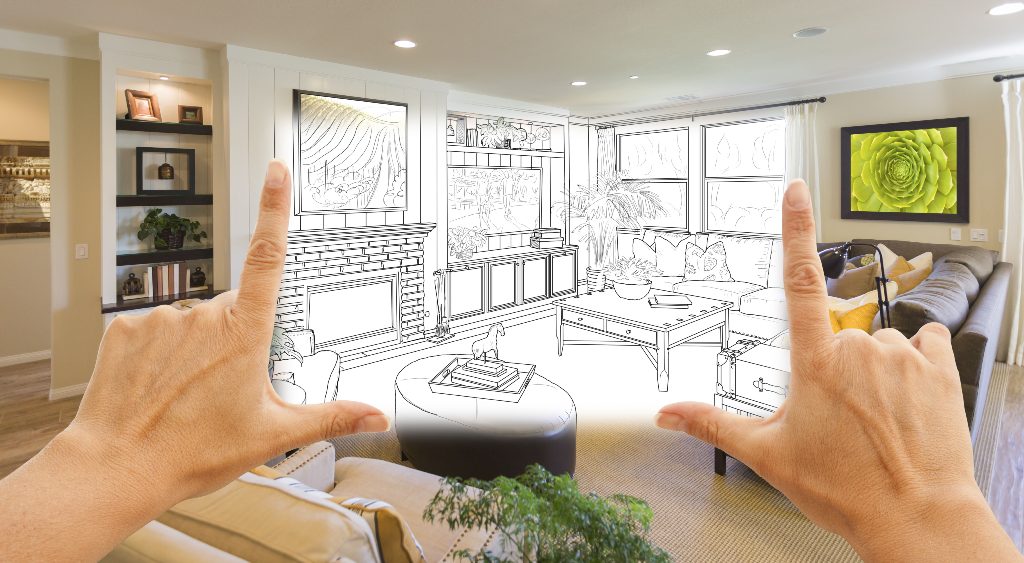5 Tips for Buying Your Dream Home

- Determine your ideal budget before house hunting, and stick to it.
- Pick a neighborhood and community that matches your style.
- Prioritize your list of must-haves to facilitate your home search.
Moving into your “Dream Home” is a life accomplishment that tops most bucket lists. Whether you find yourself driving out of your way to go past a favorite Victorian-style home or imagine yourself living in a swank and stylish loft, most of us have spent more than a few hours indulging our imagination in decorating our dream home.
But finding that perfect home involves a number of considerations, particularly if you hope to live in it for many years or as a forever home. As home buying season reaches a fever pitch during the summer, below are some tips to help make your search a little easier.
Turn the Telescope the Other Way Around
When looking for a house, whether it's a first home or a dream home, aspiring buyers, often search for properties based on the maximum amount they can borrow. Suppose the mortgage lender approves a maximum loan of $300,000. In that case, both the homebuyer and realtor begin scanning the outer limits of the horizon, searching for houses that fall just within this $300,000 budget.

Before getting too attached to this view, turn the telescope around so that properties much closer to the horizon, those costing $200,000 or $150,000, can be seen more clearly. A house that’s not just slightly below but fiendishly less than your approved limit can fill you with exhilaration and relief once you sign on the dotted line and begin making mortgage payments.
Dollars that would have been spent on a higher mortgage can now go towards paying off student loans, or other debts, ahead of schedule. A house that’s purchased well-below budget also allows you to consider spendier upgrades without breaking the bank.
Recommended Read: How To Become Financially Savvy
Budget for Maintenance
A home of your own can be a place of refuge and rejuvenation. It can also, however, impose its share of obligations. Among the charms of older homes are original hardwood floors, architectural flourishes, and large, old oak trees. Less charming are dated appliances, weather-beaten roofs, and fussy furnaces.
If a home brimming with historic details is at the top of your list, budget a little extra for upkeep and improvements. A good rule of thumb is to budget one to two percent of your home’s purchase price on maintenance expenses. If you paid $200,000 for your home, you should put aside $2,000 or more each year for maintenance expenses. If budgeted maintenance issues end up not occurring, great news!
Instead of splurging on a party or vacation, roll over those funds for the following year. Set up a separate savings account specifically reserved for maintenance expenditures to keep some distance between the maintenance budget and your everyday expenses.
Also, remember that maintenance isn’t always counted in dollars and cents. It can come in the form of time. A house significantly larger than your current or desired home size will provide plenty of elbow room, but it will also demand additional time tidying and tending to it. Take heed to Goldilocks’ fictional story and choose a home that’s not too small, not too large, but just right. This will save you both dollars and time.
Recommended Read: Four (4) Tips on How to Spring Clean Your Finances
Look Past the Jewelry
Do you love pendant lighting, waterfall shower heads, and high-end cabinet pulls? Yes, sellers know this and often bedazzle their homes accordingly before placing them on the market.
All that glitters is not gold, and these items are simply the jewelry of the house. The sizzle, if you will, and not the steak. Focus instead on those characteristics that create real value in your view and are central to the ‘homeyness’ of the house.
For instance, do you imagine weekends spent digging in the dirt, planting a garden lush with flowers, or nourishing crops? If so, when looking at potential homes, spend as much time walking around the outside of the house as the inside. If the yard doesn’t feel quite right to you—too much or too little sun, the wrong size, or some other factor that would require a compromise, then move this home off the list.
No amount of subway tiles or Edison bulbs will make up for a property that continually feels like something you’ve settled for. In short, really examine your must-haves, and build your priorities around these.
Recommended Read: Why Homeownership is an Important Wealth Building Factor
Get to Know the Neighborhood
Choosing the perfect neighborhood is often as important as choosing the perfect house. A home, after all, is part of a larger community, which will require even the most introverted to step out on occasion for mail or groceries.
To find your perfect or close to the perfect neighborhood, ask yourself specific questions, including:
- What vibe do you want your dream neighborhood to have? The upbeat tempo of a city center? The whir and hum of lawnmowers in a bedroom community?
- What amenities should be within reach? A bike lane, bus station, gym, or nearby park?

If you find yourself hard-pressed to name the qualities you prefer, go to neighborhoods that fill you with joy. Then, jot down what you love about them so you can share these attributes with your real estate agent. Your agent can then use this information to hone in on homes that are in communities that meet your criteria.
Recommended Read: Nine Key Steps to Buying a Home
Define Your Perfect Layout
The flow and layout of the home can also make a big difference in its functionality. For example, if having a bathroom within the primary bedroom suite is on your list of must-haves, and your first-choice house doesn’t have one, then think through whether you’ll want to incur the cost and disruption of a renovation to accommodate this.

Even if your home checks all the boxes and requires no renovations, life changes like a growing family can require additional usable space over time. Again, saving money early will help in planning for future projects.
Recommended Read: Should I Buy a Home?
The Money Wrap-Up
Finding a dream home requires its fair share of saving, planning, and research. However, starting early, before venturing into buying your first property, can help ensure that you find a home that fits your style and budget.